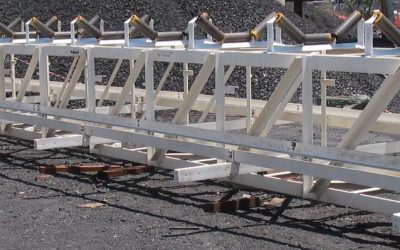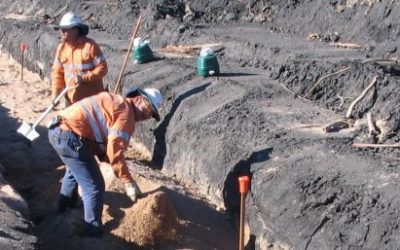Adjudication is a simple and faster method of resolving Building, Engineering and Construction payment disputes than commencing proceedings in Court.
Although simple in concept, the Adjudication Process has many different and stringent requirements around the making of an actual Adjudication Application and before we dive into what the process looks like we should discuss the terms used throughout an Adjudication Application.
You can access the Act here.
https://www.legislation.qld.gov.au/view/html/inforce/current/act-2017-043#
Simplified Terms used
Claimant – is the name given to the person who claims that they are entitled to a progress payment and who provides a payment claim to the respondent BIF s75(1).
Respondent – is the name given to the person who is liable to pay the payment claim under the construction contract.
Construction Contract – Means an agreement to carry out construction work or provide related goods and services.
Construction work – is a defined list of work and generally covers the constructing or building, altering, repairing, maintaining, demolishing of many different types of structures, earthworks, drainage and infrastructure and their associated preparatory works. Importantly it does not include drilling for or extraction of oil or natural gas, extraction of minerals or underground works. BIF s65
Related Goods and Services – are generally all the supporting items needed in performing construction work like the supply of materials or plant and equipment, provision of labour, architectural, design, quantity surveying, building, Engineering or interior or exterior design services, landscaping, soil testing and other similar types of work needed to be able to carry out construction work. BIF s66
Progress Payment – means a payment to which a person is entitled to, given they have performed construction work or supplied related goods and services under a construction contract within a relevant reference date. BIF s64 & s70
Payment Claim – is a written document that identifies the construction work or related goods and services performed, states the amount that is payable under a progress payment and requests the amount to be paid. BIF s68
Complex Payment Claim – is a payment claim that exceeds $750,000. BIF s64
Reference Date – a date stated in, or worked out under, the contract as the date on which a claim for a progress payment may be made for construction work carried out, or related goods and services supplied. Where the contract does not provide, then the reference date is the last day of the month in which the work was performed and then the last day of each later month. BIF s67
Payment Schedule – responding to a payment claim is a written document that identifies the payment claim to which it relates, states the amount for the payment and the reasons for why the amount might be different to that which was claimed. BIF s69
Due Date for Payment – Means the day upon which the payment of the progress claim becomes payable under the Contract, or if the Contract does not provide, then 10 business days after the payment claim was made. BIF s73
Rate of Interest – is the rate stated in the contract on unpaid amounts or if the contract does not provide, then the rate prescribed under the Civil Proceedings Act 2011 or if the contract is a building contract under the Queensland Building and Construction Commission Act 1991 then as per section 67P. BIF s73
Adjudication Application – Is the 7 page form s79 that must be in the prescribed format, made within time, must identify the payment claim and payment schedule to which it relates and be accompanied by the prescribed fee and include the submissions the claimant wishes to make. The Application must be served on the Respondent and the registrar must refer to an eligible Adjudicator within 4 business days. BIF s79(2)
Suspending the Work – if a respondent does not pay a payment claim in full or before the due date the claimant has an entitlement to suspend the work under section 78. The claimant must provide 2 business days notice of their intention to suspend. Should the respondent remove the work from the claimant and the claimant suffers a loss, that loss is liable by the respondent to pay. The claimant is also not liable for any loss or damage that the respondent incurs as a result of suspending the work. BIF s78 & s98
Submissions – are a written document that may contain any material that the claimant wishes to include in describing the nature of the payment dispute to support their case. Written submissions can include exhibits or annexures that may be excerpts of the contract, project documentation, statutory declarations or expert reports. Submissions for claims over $25,000 have no length limits however for claims of $25,000 or less they must be limited to 10 pages in total excluding some specific supporting documentation which is prescribed by the regulation. BIF Regulation s17
Adjudicator – means the suitably qualified and currently registered person who has been referred the Application and who has accepted the referral and therefore has become appointed under the Act to decide the Adjudication Application. BIF s81 & s159 & s161 & s165
Jurisdiction – means the powers, or limitations on powers, that an Adjudicator has in deciding an Adjudication Application under the Act. An Adjudicators powers under the Act are to decide if they have Jurisdiction, if the Application is frivolous or vexatious, the amount of the Payment Claim, the due date for payment, the rate of interest and the percentage of Adjudicators fees and expenses to be paid between the parties. Deciding Jurisdiction can take many issues into question such as licensing, validity of the Contract, definition of construction work or related goods and services, the parties entities themselves, the service, reference date, validity of the Payment Claim, the Payment Schedule, compliance with required timeframes and any new reasons raised in an Adjudication Response. BIF s84(2)
Request For Further Submissions RFFS – is a written request from the Adjudicator to both the Claimant and Respondent to answer specific questions or provide particular material. Usually specifically drafted with strict timeframes and submission criteria with the opportunity of each party to make submissions on the others material. BIF s84(2)(b)
Adjudication Response – a entitlement for a Respondent, should they have provided a Payment Schedule in the first instance, to provide a written response to the Adjudication Application containing any material that the Respondent wants to include to support their case for the withholding of amounts from the Payment Claim. The exception is that the Respondent is not entitled to include new reasons for withholding amounts, hence the importance of a proper and comprehensive Payment Schedule in the first instance. New reasons are not permitted to be considered in the Adjudication Decision by the Adjudicator. An Adjudication Response may include submissions, Contract documentation, Project documentation, statutory declarations or expert reports as may be required to present and support the Respondents case.
Adjudication Decision – is a written decision of the Adjudicator on the Adjudication Application stating the case presented, the facts decided, determined from the Contract or believed by the Adjudicator from each parties submissions. The decision is to include the reasons around the Adjudicator having Jurisdiction to decide, the reasons around the decided payment claim amounts in determining the Adjudicated Amount, due date for payment and interest rate and percentage of Adjudicators fees and expenses to be apportioned to the parties. Adjudication Decisions can range from 12 – 16 pages for lower value payment claims and simple matters up to one hundred or so pages for complex or lengthy maters. Upon a decision being made the parties are notified along with the adjudication fees invoice which is to be paid before the release of the decision. BIF s88
Adjudicators Fees – an Adjudicator may decide the proportion of their fees to be payable by the Claimant and Respondent and may take several matters into consideration in doing so. The relative success of each party, whether the Adjudication was brought for an improper purpose or without a reasonable chance of success, the reasons given for non payment, the amount of time taken in reviewing and determining submissions based on the material of the parties, any other matter that the Adjudicator feels is relevant. BIF s96
Adjudication Certificate – is a certificate issued by the registry within 5 days of completion of the Decision which can be used to file as a judgement debt in a court of competent jurisdiction and be enforced.
Want to know more ?
Check out some of our more detailed information on Adjudication here. We have put together a comprehensive guide in 7 parts. You can download all of them as a consolidated paper from the last article.
Tips for those who prepare Adjudication Applications
Having been an Adjudicator now for over five years I can definitely tell you that some applications are way better...





0 Comments